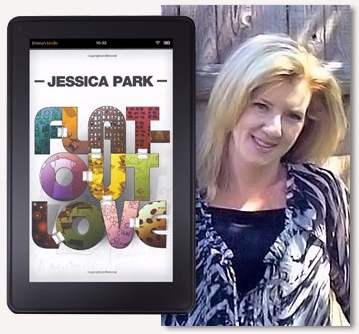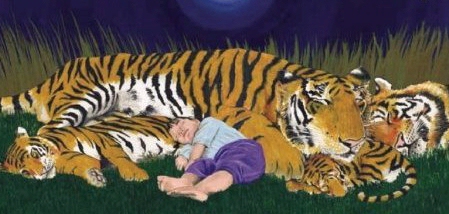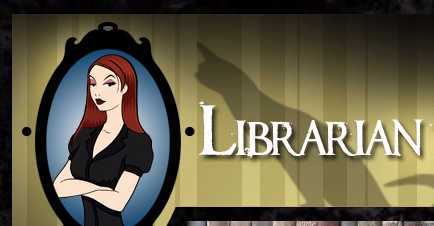
It felt like something happened last week. A writer dared to speak the truth — spilling the beans about how hard life is for a professional book author. Jessica Park finally revealed how much real writers can hate their publishers, and how much happier she is now that she’s publishing her ebooks in Amazon’s Kindle Store. “The funny thing is that I feel more like a real author now that I self-publish than when I had the (supposed) support of a publisher behind me.”
The article was just published on the 15th at a web site called IndieReader.com (and it was later republished on The Huffington Post). But by that Tuesday, Amazon — in what’s almost an act of war — featured her article on the front page of Amazon.com! It seems like now everyone is noticing it. Three of my friends each decided to share that same article last week on Facebook.
The top Kindle blogs are also buzzing about it, and it’s almost starting to feel like a revolution. “One of the major reasons that I write is to connect with readers, not publishers,” Jessica explains. “The truth is that I couldn’t care less whether New York editors and publishers like me. I don’t want to write for them. I want to write for you.” Publishers had rejected her newest novel, Flat-Out Love, because its main character was a few years older than they’d wanted the character to be. “It clicked for me that I was not the idiot here.
It’s hard to ignore Jessica when she reveals just how much more money she’d earned after leaving behind the traditional publishers. (In one especially good month, she sold close to 50,000 ebooks.) And despite her role as an author, Jessica writes that “I have to credit Amazon with giving me such a strong platform with such overwhelming visibility. I can be a writer. I am a writer….”
“It’s heartwarming,” Amazon’s founder wrote on the front page of Amazon.com, saying that Jessica’s article “tells a powerful story about what Kindle Direct Publishing makes possible. Kindle Direct Publishing empowers serious authors to reach readers, build a following, make a living, and to do it on their own terms.” And he points out that it’s not just the authors who are benefiting. “Readers get lower prices, authors get higher royalties, and we all get a more diverse book culture (no expert gatekeepers saying ‘sorry but that will never work’).”
Is it a trend? Maybe. Amazon’s founder also notes that of the top 100 best-selling ebooks in the Kindle Store for all of 2012, there are 22 that came from Amazon’s “Kindle Direct Publishing” program. (“[A]nd more great stories are being published every day…”) But I think there’s an even more compelling piece of evidence — the real passion that seems to glow in every single word of Jessica’s article. “We get to bring you our stories in the way we want to tell them, without the dilution and sculpting from publishing houses. And the fans? Oh, the fans are simply unbelievable…Their support and enthusiasm breathes life into days when I feel particularly challenged.
“I’m in a circle of authors who have been dubbed The Cancer Warriors because our books have become saving graces for people going through cancer treatment. Readers are escaping hell on earth through our books. …books that never would have reached these readers without the ability to self-publish. We get to do our small part to help them fight. Getting to be part of something like this is at the top of my list for why I write.
It makes me want to face New York publishers head on and scream, “You see that? Do you see what we’re doing without you?â€


